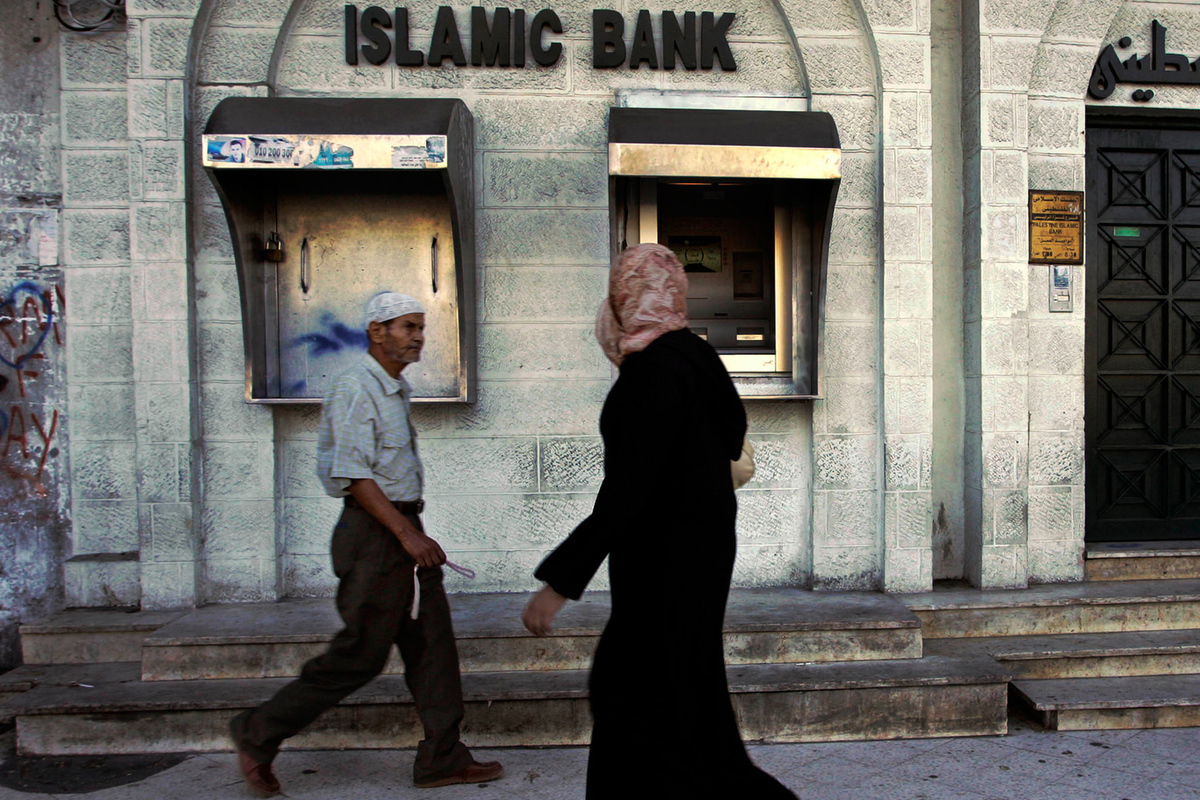Finance in hijab: Islamic banking launched in four regions of Russia
[ad_1]

How and to whom will money be given out according to Sharia law
On September 1, in four Russian regions – Bashkiria, Dagestan, Tatarstan and Chechnya – an experiment was launched to introduce Islamic banking into the domestic financial system. According to the bill, which was signed on August 4 by President Vladimir Putin, it will last two years, until September 1, 2025. At the same time, the duration of the experiment can be increased, as well as the list of regions participating in it. Analysts consider the launch of such a project for our country as part of the global “pivot to the East”. About the features of Islamic finance and interaction with money according to Sharia law – in the material “MK”.
Particular interest in Islamic banking in the world arose after the crisis of 2008-2009. Financial institutions operating in this paradigm then showed greater stability than Western credit institutions. The fact is that Islamic banking, which is also called partner banking, involves a number of restrictions and prohibitions that are consistent with Sharia law and are strictly observed. Firstly, within the framework of this religious law, “loan interest” is prohibited, that is, it is impossible to “give money on interest”. It is partnership financing that is used: for example, a client invests in a business that a bank buys (thus making a bank deposit familiar to everyone), and then receives a part of the profit during the sale. Or this is an installment plan, in which the property purchased with the bank’s money is transferred to the client with a trade margin (thus, an analogue of a loan is issued). The second important feature of Islamic finance is that they are focused on supporting and developing the real sector of the economy. Speculative transactions that are not related to activities of direct benefit are prohibited. In other words, it is simply impossible to conduct transactions with any type of securities and derivative financial instruments (futures, options, etc.) in Islamic banking. The third feature of Islamic finance is related to the ethical norms of Sharia: enterprises operating under this law are prohibited from financing activities that are condemned by Islam. For example, a casino, a lottery, the production of pork and alcohol, as well as any socially condemned business (strip clubs, night bars, etc.).
In the four regions of Russia where the Islamic banking experiment has started, special partner financing organizations (OPFs) will be involved in it. The Bank of Russia will regulate their activities. These institutions will not be able to receive remuneration in the form of interest payments. However, they are allowed to receive payments in the form of a variable amount depending on the results of the financing operations carried out. According to Ivan Samoylenko, managing partner of the B&C Agency, the Islamic banking experiment was launched by the authorities to increase the popularity of loans in those Russian regions where people live under Sharia law. “Russia is a multinational power, we have a fairly large number of deeply religious Muslims. They do not drink or smoke and follow strict Islamic rules. OPF, first of all, are created specifically for this group of the population, for their comfort,” the expert noted.
According to financial analyst Sergei Drozdov, the Islamic bank may raise funds in the region of $11 billion. And although they may seem small at first glance – there are Muslim businessmen in Russia whose personal wealth is much more than this – it is important to look at the situation strategically. Recall that in the geopolitical confrontation between Russia and the West, it is the Muslim world that is extremely reluctant to support sanctions and other attempts to limit the economic freedom of our country. “The development of Islamic banking will attract foreign banks and foreign investors to these regions, for example, from Turkey, the United Arab Emirates, Iran and Saudi Arabia,” says BitRiver Communications Director, economist Andrey Loboda.
In other words, for the Russian leadership, the launch of Islamic finance is part of a broader concept of “pivot to the East.” In the future, for several years, it can facilitate the attraction and investment of investments, trade operations with the countries of the Middle East, the Persian Gulf, Central and Southeast Asia. The relevant structures created in Russia can actively work with contractors abroad on the principles familiar to them, bypassing the restrictions imposed by the West, and strengthening the position of our country in the international arena.
[ad_2]
Source link






